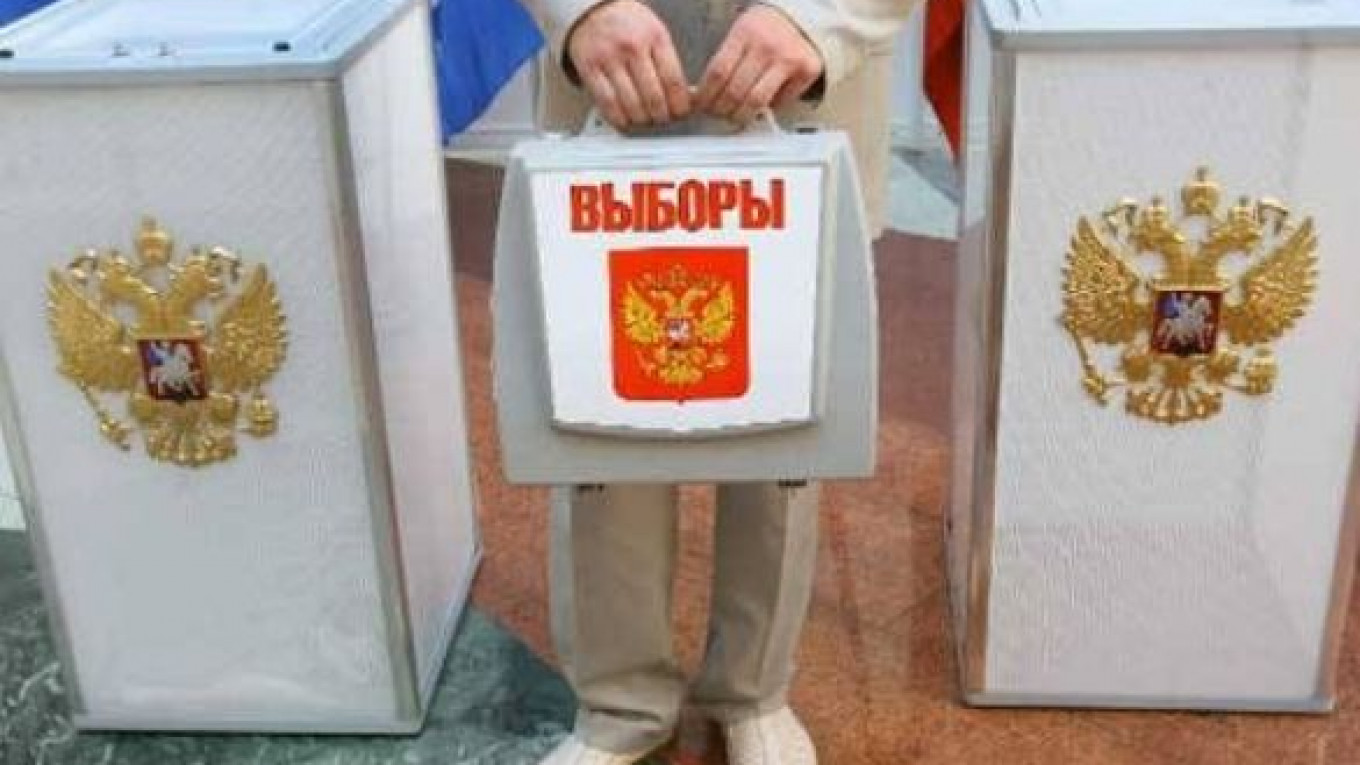Unprecedented numbers of independent poll workers will help ensure clean elections in Moscow and St. Petersburg through 2018, a group of leading vote monitors said Tuesday, but the ruling United Russia party and local governments will continue to control polling stations elsewhere, a lingering risk of electoral fraud.
In Moscow, three-fourths of local elections commissions — which oversee polling stations and can prevent violations — will include at least one independent member, while commissions in several regions may not have any, the group said at a news conference, where they released the results of a campaign to recruit poll workers.
Not a single volunteer in the republics of Kalmykia, Ingushetia and Tyva, as well as the Chukotka autonomous district, joined the "Honest Elections Commission" campaign, a joint project by prominent vote watchdogs Golos, Citizen Observer, RosVybory and SONAR.
That means that State Duma elections and presidential elections, scheduled for 2016 and 2018, respectively, as well as gubernatorial and other elections in between, will be carried out by an estimated 1 million poll workers drawn largely from the ranks of United Russia and state employees.
Many of the same people oversaw State Duma elections in December 2011, which were widely seen as fraudulent and sparked unprecedented protests in Moscow and other large cities.
"Most of the members on my commission see the work as an annoying and exhausting obligation whose purpose is to achieve the desired, prearranged result as quickly as possible," said Yury Saprykin, a journalist and newly minted commission member.
The Honest Elections Commission campaign was launched late last year to raise confidence in the electoral system by placing independent civil activists on local elections commissions, of which there are about 90,000 nationwide.
Backers say the campaign is critical in light of an October law that stipulates that the commissions be formed for five years instead of on an election-by-election basis, meaning that the commissions formed by the April 30 deadline will supervise elections, counting and certifying votes, for years to come.
The campaign's recruiting efforts were most successful in Moscow, by far the country's most politically active large city, where 3,700 activists signed up to become poll workers, and 2,671 were placed.
But weak civic activism and limited local contacts meant that volunteers were less forthcoming in other regions. In six of them, including Kamchatka, only one volunteer came forward.
Most independent commission members were placed under the aegis of political parties, which have special sway over the process. The vote watchdogs frequently partnered with A Just Russia and the Communist Party — which have struggled to fill their allotted spots on the commissions — and sometimes with United Russia and LDPR.
Interestingly, 75 percent of all volunteers were men, more than half were between the ages of 20 and 40, and more than three-fourths had some experience observing elections.
"I hope that we're at the beginning of a useful, engaging and not hopeless road," Saprykin said.
Contact the author at j.earle@imedia.ru
Related articles:
A Message from The Moscow Times:
Dear readers,
We are facing unprecedented challenges. Russia's Prosecutor General's Office has designated The Moscow Times as an "undesirable" organization, criminalizing our work and putting our staff at risk of prosecution. This follows our earlier unjust labeling as a "foreign agent."
These actions are direct attempts to silence independent journalism in Russia. The authorities claim our work "discredits the decisions of the Russian leadership." We see things differently: we strive to provide accurate, unbiased reporting on Russia.
We, the journalists of The Moscow Times, refuse to be silenced. But to continue our work, we need your help.
Your support, no matter how small, makes a world of difference. If you can, please support us monthly starting from just $2. It's quick to set up, and every contribution makes a significant impact.
By supporting The Moscow Times, you're defending open, independent journalism in the face of repression. Thank you for standing with us.
Remind me later.






